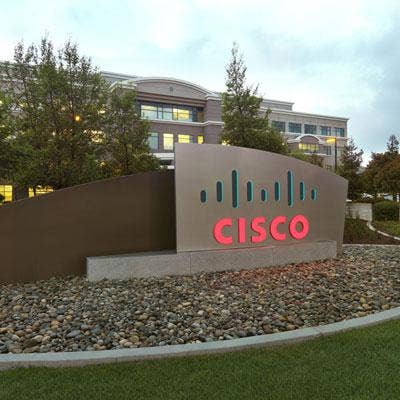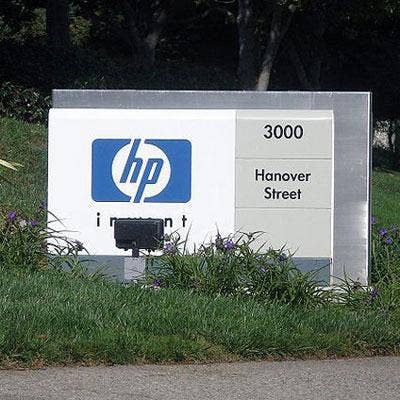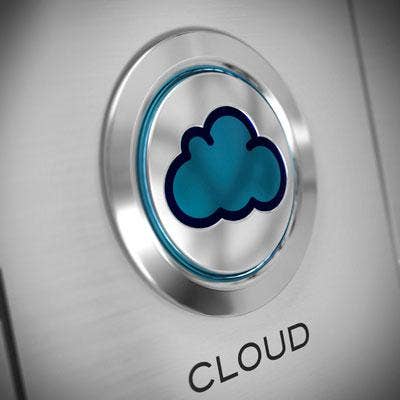Cisco, HP Duking It Out For Cloud Infrastructure Crown

Getting Into The Cloud Ring
Cisco Systems and Hewlett-Packard are neck and neck in the rapidly growing cloud infrastructure equipment market, with both companies owning just over 13 percent of the worldwide market share by revenue, according to new data from Synergy Research Group.
The networking giant has a clear lead in the public cloud infrastructure market, while HP is beating Cisco on the private cloud side. Synergy reports that total cloud infrastructure equipment revenues for the first quarter of the current fiscal year were more than $14.5 billion, representing a 25 percent year-over-year growth.
CRN spoke with Jeremy Duke, founder and chief analyst at Synergy, and solution providers about how the two rivals are leading the market and who will ultimately win.

Cisco Riding A 6 Percent Lead In Public Cloud
Cisco is leading the public cloud, with 15 percent of market share, followed by HP at 9 percent and Dell at 6 percent.
"Cisco is tied in with VCE around the vBlock technology, and Cisco is tied in with NetApp around FlexPod. They offer quick turn-key solutions to getting these types of things going. Not that HP doesn't offer them, but that's what gives Cisco an advantage," said a top executive at one Northeast solution provider who partners with HP and Cisco. "Telecoms are typically the ones building the bigger public clouds, and HP doesn't really play like Cisco in that telecom market."
The San Jose, Calif.-based networking giant's 6 percentage point market share lead over HP on the public side mainly stems from its already established share of the networking segment and its growing position in servers, according to Duke.
" Cisco has come from the initial infrastructure build-out of what we have now come to know as the Internet," said Duke. "For Cisco, a significant disruptive decision was to invest in blade servers, which was then followed with Cisco building specialized algorithms and ASICs to make servers, networking and storage work together optimally."

HP No. 2 In Public Cloud
Palo Alto, Calif.-based HP holds the No. 2 spot in the public cloud, with 9 percent.
HP touts its Helion Public Cloud as a transparent, enterprise-grade public cloud based on OpenStack technology, offering pay-as-you-go cloud services for computing and storage infrastructure as well as platform services.
"Helion has a great message, [but it's] not practical," said another executive solution provider on CRN's Solution Provider 500 list who partners with Cisco and HP. "I don't know of many true Helion deployments."
HP created a scare in the partner community after The New York Times reported that the company would be "ceding" public cloud market. Although executives later denied the report, partners are also wondering if HP's splitting into two companies will have an impact on the enterprise market.
"Since HP's No. 2 here, there's no need to panic, but I'm wondering what they're going to look like in this [space] in a year," said the SP500 executive. "We're all hoping the split-up goes through smoothly."

HP Winning Private Cloud By 5 Percent
HP is in the No. 1 spot when it comes to the share of private cloud infrastructure, owning 16 percent of the market, followed by Microsoft with 13 percent share, then Cisco at 11 percent.
The company's private cloud dominance is the result of its strong legacy as an enterprise server vendor, said Duke.
"HP has been a strong foundational part of private enterprise and SMB IT infrastructure for decades, with HP's flagship data center and cloud offering being based around server computing," said Duke.
"For organizations that are truly building their own private cloud internally -- they may be building on things like OpenStack or Linux KVM -- those types of technologies, the commodity hardware that HP has plays much better than the Cisco stuff from a cost perspective," said the Northeast solution provider executive.

Cisco Trails HP, Microsoft In Private Cloud
Cisco sits at the No. 3 spot in the private cloud market, lagging behind HP by 5 percentage points.
Partners said Cisco's Intercloud strategy of hybrid clouds isn't resonating quite yet with customers in 2015 as much as they anticipated, which could be impacting its private cloud sales.
"[Cisco's] really pushing hybrid IT, instead of solely private cloud," said the Northeast solution provider. "HP had the Moonshot program that went out that had very dense servers for scalability, which might have taken some [share] from Cisco here."
The networking giant in April did unveil a new OpenStack Private Cloud Bundle and new financing option aimed at enabling channel partners to sell its OpenStack Private Cloud offering, which it gained in September through its acquisition of Metacloud.

Total Cloud Market
HP’s growth over the past four quarters has slightly outpaced Cisco's, allowing it to close the gap on its biggest competitor, according to Duke.
The rival companies are racing side by side for the total cloud infrastructure equipment race -- both hovering at 13 percent, followed by Microsoft at 8 percent.
"The fundamental reason for HP's and Cisco's current leading share position really comes down to where each vendor started from, in that their starting point has led and defined their path to where they are today," said Duke. "For the future, … this is where things are going to get very interesting."

Who's Going To Win?
"If you look at it from the network and the converged infrastructure, I do think Cisco definitely has a leg up," said the Northeast solution provider executive. "HP to me, it's not that they don't have the solutions out there, I just don't see the sales and marketing as orchestrated quite as well as Cisco. I would hedge my bet on Cisco over HP."
Duke says whichever advances the development of its computational, networking platforms and creates software that fully optimizes the infrastructure will win the market. Advances must come in the form of management and orchestration of networking and storage platforms such as OpenStack. Additionally, advances in enterprise collaboration platforms and automation are needed, says Duke.
"I think the public cloud ranking is the only one that is real, since I know of very few true private clouds in the world," said the SP500 executive. "So I would go with Cisco."

Other Key Players
Several other vendors have seen year-on-year cloud revenue growth rates in excess of 20 percent, says Duke, while original design manufacturers (ODMs) are also benefitting from hyperscale cloud providers' outsourcing the supply of their own designed hardware.
For total cloud infrastructure, Microsoft was in third place at 8 percent, followed by Dell, IBM, and EMC, which are all in the 4 percent to 7 percent market share range. VMware and Lenovo both have 3 percent or less market share. Microsoft and VMware are key players in the total cloud ranking because of their positions in server operating system and virtualization applications, while IBM maintains a strong presence across a range of cloud markets.